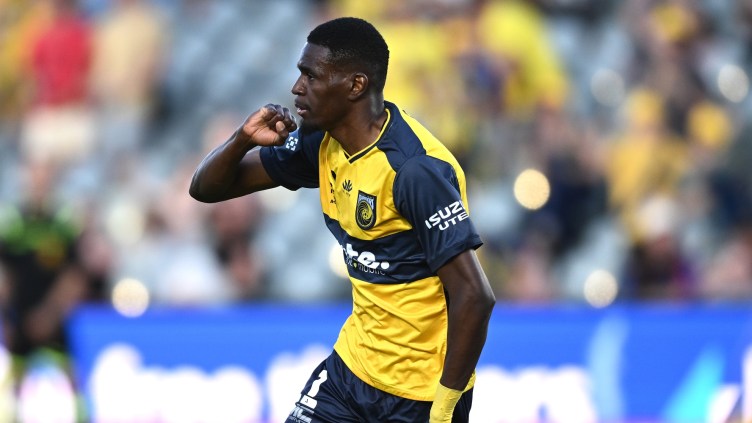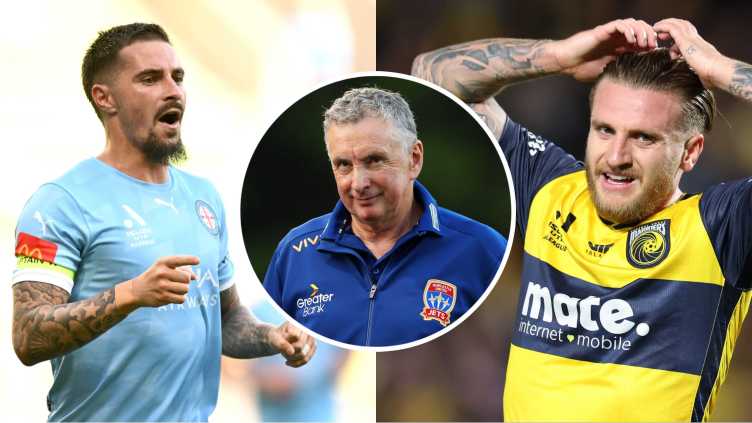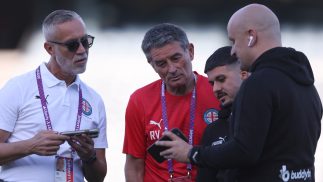Béni N’Kololo was plucked from the French third tier by the Mariners, before becoming a key player in Gosford. He tells KEEPUP how the “impossible” move became a reality – and has advice for young Aussies hoping to seal a move abroad.
Three brothers spent their childhood playing football in a park nearby their family home in Rennes in the northwest of France.
The eldest, Etanda, grew up to play professionally in Ireland. The middle brother, Jordan, became a Democratic Republic of Congo international, and a French Ligue 1 regular with SM Caen.
The youngest followed in the footsteps of his two brothers to forge a career of his own, which has taken him from the third tier of football in France to Australia and the “jungle” of the Central Coast.
“But if you told me that I’d be playing in Australia a few years ago,” begins Béni N’Kololo, “I would have said: ‘Impossible!’”
BUY TICKETS TO THE GRAND FINAL
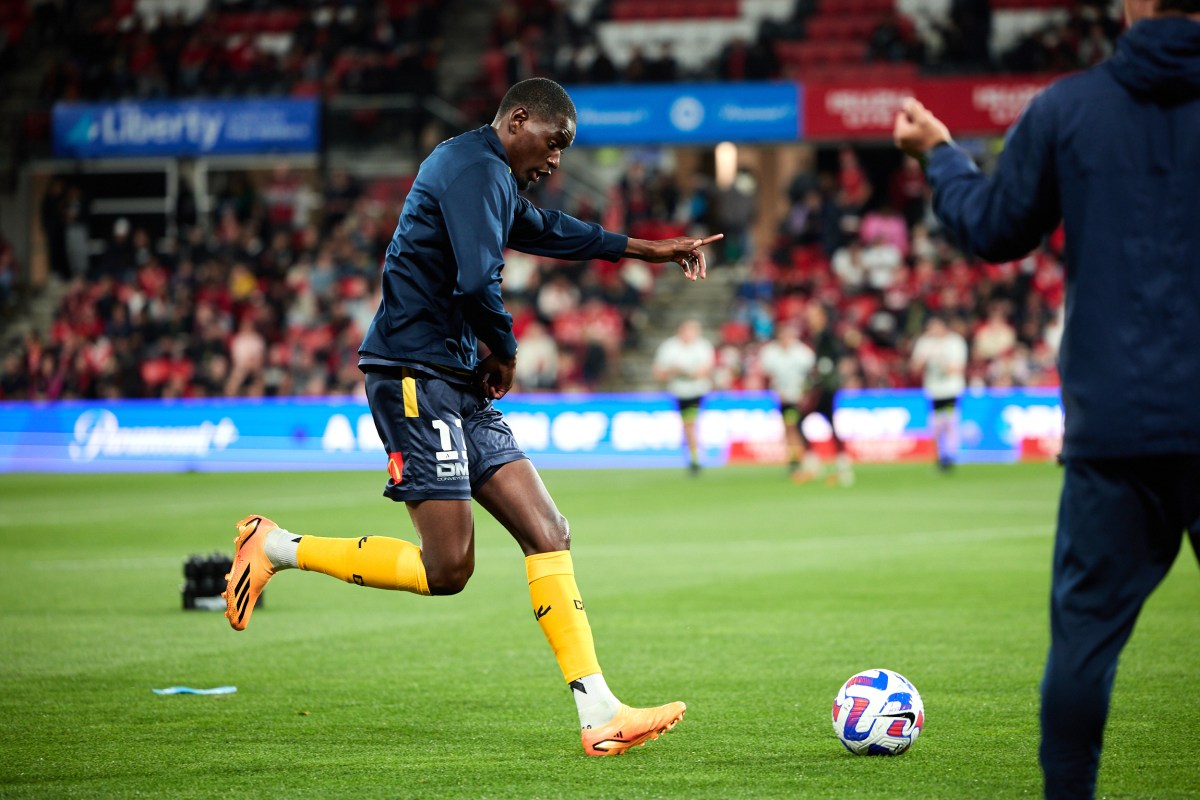
BUY TICKETS TO THE GRAND FINAL
N’Kololo speaks to KEEPUP as he prepares to line up for the Mariners against Melbourne City in the 2022-23 Isuzu UTE A-League Grand Final. The 26-year-old is yet to win a trophy through a career that began in France’s Ligue 2 in 2016, before a drop down to the country’s third tier in search of more game time.
Then came an offer from Central Coast Mariners in mid-2021.
“It was a shock,” the winger tells KEEPUP, recalling his initial contact with the Mariners. “I thought: ‘Australia? Oh my god, it’s so far!’ I couldn’t imagine playing in Australia in my life.
“But I went on Google and started to watch some videos. I said: ‘Oh, it looks good’. But even if I knew it looked good, when I took the flight, I didn’t know what really to expect. I had to see it with my eyes.”
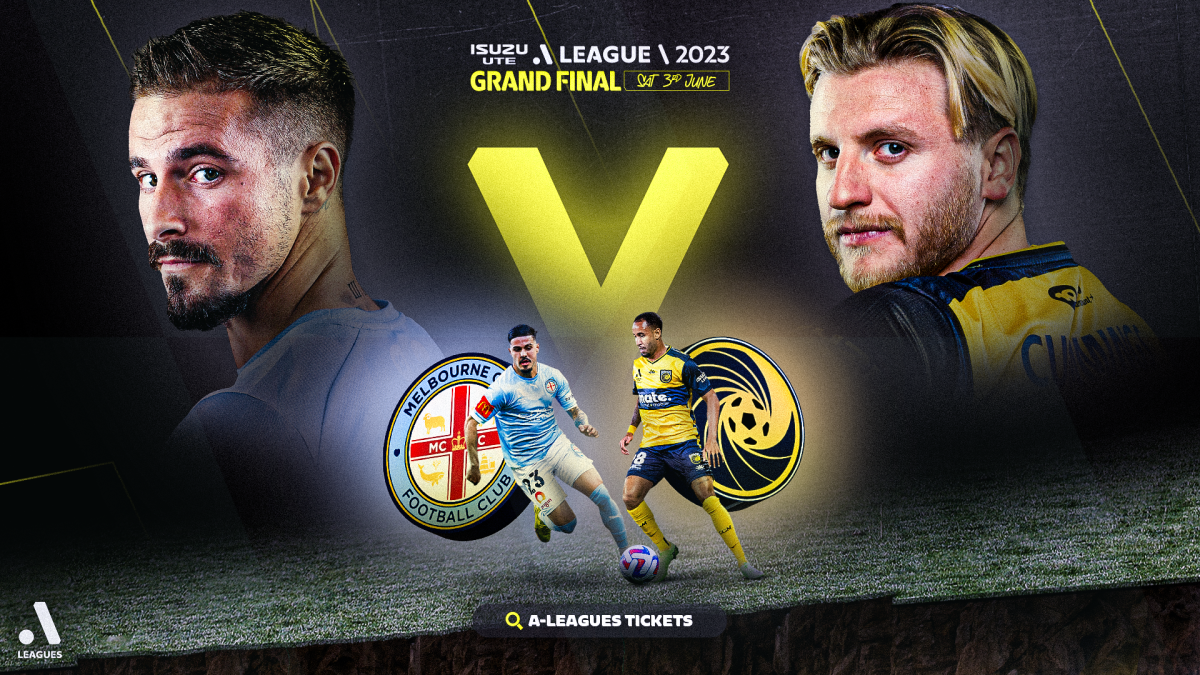
N’Kololo was wooed by an incessant pitch from the Mariners. It was a recruitment push spearheaded by head coach Nick Montgomery (“the last two weeks before I came, Nick Montgomery was calling me every day!”).
He received encouraging messages from staff across all sectors of the club – and a phone call that proved pivotal in sealing his move to the Coast.
It came from Mariners midfielder Max Balard – an Australian born to French parents.
“It was Maxy who sent me a message first,” N’Kololo says. “We were talking, calling each other. I was asking him: How is Australia? How is the life? How is the club?’ He told me: ‘This is a good league. The Coast is beautiful for living. Even if you’re alone or with your family, it’s beautiful’.
“With the language barrier, Maxy helped me a lot when I first came here. When we had meetings and the coach was talking for a few minutes, I couldn’t understand everything. So after the meeting I’d ask Maxy what the coach said, and he’d explain everything to me.”
PLAYERS POD: ‘Extremely important’ reason fuelling the rise of A-Leagues entrepreneurs
BUY TICKETS TO THE GRAND FINAL
“It was a big decision to come,” he adds. “I was in France, I was playing in third division, and I really wanted to find a new challenge.
“I had only played in France all of my life. So, it was my first experience overseas. The transition was hard with the language and the lifestyle. But in terms of football, it was okay.
“I came to a very good club with a community, the people, the way they welcomed me was fantastic, to make me feel comfortable.
“If you go to Melbourne and Sydney, the big cities are like European cities. But when you arrive on the Central Coast, it’s like a jungle. With roads, with cars, with buildings – but it’s a jungle. It’s beautiful.”
N’Kololo joined the Mariners after five seasons spent playing for multiple clubs in the Championnat National.
At 19, he broke through to debut for Stade Brestois in Ligue 2. Next on his list was securing a professional contract with the club. But then came a new manager at the helm of Brestois, Jean-Marc Furlan, who changed the trajectory of N’Kololo’s career.
“When I came back for next season, I did the pre-season with the professional group,” he says.
“The coach of the first team came to me and told me: ‘Listen Béni, my goal is for you to make a career, but if you stay here right now you will not play with me in Ligue 2’.
“He told me: ‘The best thing for you is to go in the third division, have a lot of game time and just play. Because you are young, it’s good to train with the first team but if every weekend you go and play with the reserve team, it’s not good for you’.”
In this moment came what N’Kololo describes as the “first big challenge” of his career.
“Until I was 18 years old, I was always on the best teams for my age,” he says. “But when I was 18 and I didn’t sign professionally, I think this moment started a big challenge for me, running after a professional contract.
“Before that I was always in the best teams, I had good seasons, but after 18 I started to run after a contract.”
N’Kololo went on to play for US Avranches, Tours FC, Lyon – La Duchère and US Concarneau in the Championnat National. The third tier of French football helped to launch the careers of the likes of N’Golo Kanté and Olivier Giroud, a pair of World Cup winners with France in 2018.
Their stories served as “a big inspiration” to N’Kololo when his dreams of reaching Ligue 1 were put on ice – along with the advice he received from his two elder brothers, Etanda and Jordan, on his path to becoming a professional.
“I have two big brothers who are professional footballers,” N’Kololo says. “One played in France in first division, and the other one played in Ireland, in the second division. I grew up with them, playing every day.
“We would play near our home, there was a little park where we’d play. Also all the time at school. Then after that, I would train with my club, but when I came home I would play again in the park with my friends, and with my big brothers.
“My brother Jordan, he was much closer (in age) to me, so we would play all day, competitive every day. I just tried to be better than him every day. It was hard.
“They always have had good advice for me, on the pitch and off the pitch. They always tell me: ‘Don’t complain if something is wrong. Just be happy and play football. When you have no stress, be happy and play football then people will see the best of you on the pitch’.”
BUY TICKETS TO THE GRAND FINAL
KEEPUP’S GRAND FINAL COVERAGE
MARINERS CEO: After eight years, a ‘living hell’, ‘black eyes’ and Bolt, why Mielekamp wants to ‘close chapter’ on the past
NABBOUT: Leap of faith that saved a Socceroo who turned down World No. 99 for the ultimate ‘long shot’
GRAND FINAL PARTY: Legends, 5-a-side, meet your heroes – key details
MELB CITY: Two incredible stories sum up their rise
JAMIESON’S RETIREMENT: The moments with his son that will stay with Scott Jamieson for a lifetime
N’Kololo has taken that advice to heart since his arrival in Australia, complimenting the flair of Samuel Silvera and Marco Tulio, and the creativity of Jason Cummings in the Mariners’ attack with his own fluid, expressive style of play.
Saturday’s Grand Final will conclude the second season of N’Kololo’s three-year contract at the Mariners.
“For now, the next hope for short-term is of course to win the trophy,” he says.
“But of course, if tomorrow I get a good opportunity in Europe, Nick Montgomery will be the first person to tell me to go.”
That’s not to say the Frenchman would leap at any chance to continue his career closer to home. In N’Kololo’s summary of his own career priorities, lies a message to young Australians hoping to make a leap from the A-League Men in search of opportunities abroad.
“I think for a lot of people here, everyone wants to go to Europe. But it depends the condition (of the league),” he says.
“You can go to Europe, but if you go in a bad championship in Europe, (to me) this is stupid.
“You can stay in the A-League in Australia and play for a very good team, and go to finals, win titles, play in Asia.
“I think if you go to Europe, it has to be a good opportunity in a good league. Maybe if the championship is very bad, you have to go to the best team and you play UEFA Conference League or Europa League. But if it’s just to say: ‘I’m in Europe’, and you go and play in Bulgaria, or Romania in a bad team, it doesn’t make sense.
“Since I came here, I saw some young players leave for overseas, but they deserve better. Some players they go to Norway, or other (leagues) – but I saw them play, and I think they deserve better. But at the end of the day, it’s their choice. You have to respect that.
“For me, let’s see what will be next. For now the most important thing is to win the trophy, and then we’ll see.”
BUY TICKETS TO THE GRAND FINAL

